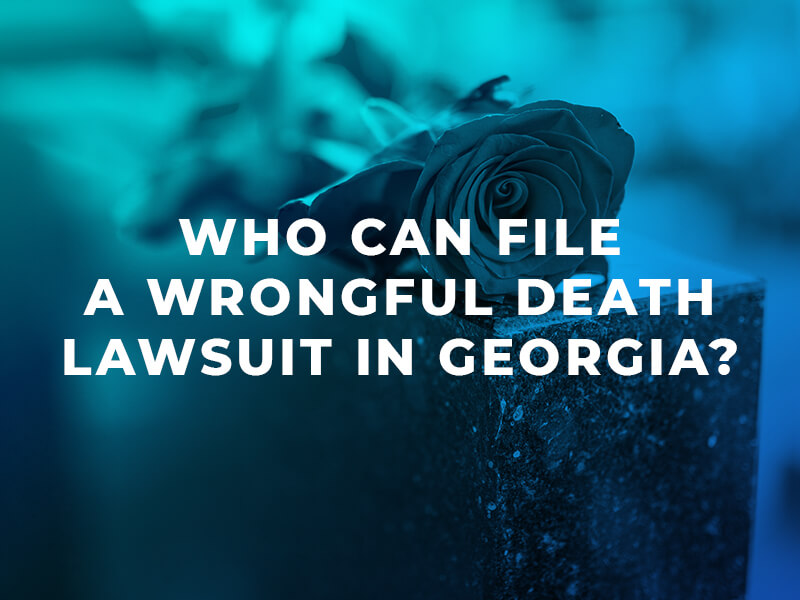Who Can File a Wrongful Death Lawsuit in Georgia?
Losing a loved one due to the careless, negligent, or criminal actions of someone else is incredibly difficult to deal with. Family members are often left picking up the pieces, wondering what they can do moving forward. Today, we want to discuss wrongful death cases, particularly, who is able to file a wrongful deal lawsuit in Georgia.

What does the law say about Georgia wrongful death?
Georgia’s laws cover wrongful death cases and state that, if a person is killed by the wrongful act of another person, company, or entity, then the family members of the deceased have the right to bring a wrongful death claim. They can make a claim for “the full value of the life of the decedent.”
Under Georgia law, only specific persons are allowed to bring a wrongful death claim. This includes:
- The spouse of the deceased: The first person entitled to file a wrongful death lawsuit is the spouse of the deceased if they were married. The spouse is also able to file a wrongful death lawsuit on behalf of any children of the deceased who are under the age of 18.
- The parents of the deceased: If the deceased person was not married, does not have a surviving spouse, and does not have children, then any surviving parent can bring a wrongful death lawsuit.
- An estate representative: A wrongful death lawsuit may also be filed by a designated representative of the deceased person’s estate. Any damages recovered will go to the estate and distributed to the deceased’s next-of-kin.
How do Georgia wrongful death cases arise?
There are various ways in which wrongful death cases arise in Georgia. Some of the most common revolve around:
- Vehicle accidents
- Pedestrian and bicycle accidents
- Commercial vehicle accidents
- Medical malpractice
- Defective products
- Workplace accidents
- And more
What is the statute of limitations in a Georgia wrongful death case?
For most cases, you must file a Georgia wrongful death claim within two years from the date of a person’s death. In some circumstances, this two-year limit may be extended. If a criminal case related to the events in the wrongful death case is in court, the two-year limit will be extended until the criminal case is concluded.
It is important to note that there does not have to be a criminal case in order for there to be a wrongful death claim. Likewise, if a person is found not guilty in a criminal case, they can still face a civil wrongful death lawsuit.
What kind of compensation is available?
Person’s bringing a wrongful death claim are entitled to the “full value of the life of the decedent.” This is tough to define, and a jury will be asked to look at the totality of a person’s life value. Both financial losses and intangible losses will be taken into account. This includes evaluating their age, income, potential earning capacity, and more. Intangible components such as a person’s love, daily activities with family, caregiving to their spouse and children, emotional support, and more will also be analyzed.
Other types of damages typically included in a wrongful death settlement include:
- Medical costs for treating the deceased’s past injuries or illnesses
- Funeral and burial costs
- Pain and suffering the deceased endured before they died